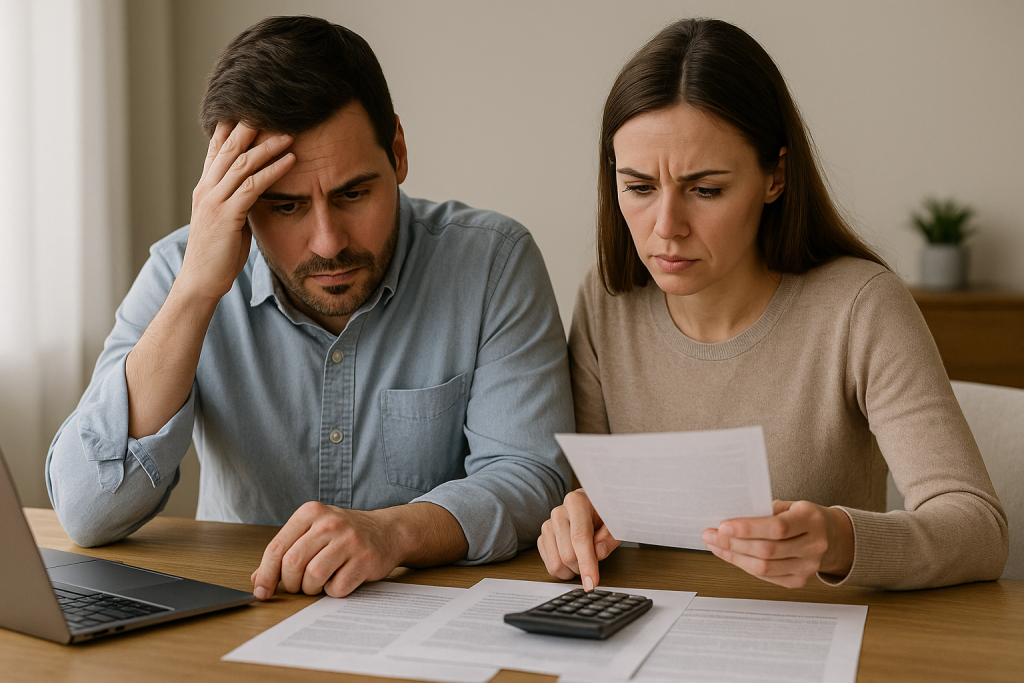Periods of economic instability put personal finances under pressure. Job losses, rising prices and reduced income can affect both short-term stability and long-term plans. In these moments, many people struggle to maintain control over their budget and spending habits while dealing with sudden changes in their financial landscape.
This article outlines how economic crises affect your financial decisions and what you can do to respond with confidence. You’ll find practical suggestions to help protect your personal finances, adjust your goals and rethink how to navigate uncertainty with resilience.
Managing personal finances in times of crisis

During a financial crisis, many households are forced to revise how they manage money. When earnings shrink and essential costs rise, the gap between income and expenditure becomes harder to manage. That’s why identifying which expenses are necessary—and which can be paused—is the first step towards gaining stability.
A clear budget helps restore direction. Start by listing all sources of income and organising your spending into fixed and flexible categories. With that clarity, it becomes easier to prioritise what truly matters—like housing, food and utilities—while reducing costs that can be temporarily set aside without compromising your wellbeing.
Emergency savings also play a crucial role. If you don’t have a reserve yet, consider setting aside even small amounts regularly. Having access to emergency funds, however modest, reduces reliance on credit and gives you room to respond to unexpected expenses without further stress.
Smart steps for short-term financial stability
Rather than maintaining previous goals, focus on protecting what you already have. That might mean delaying large purchases, putting non-essential subscriptions on hold or stepping back from higher-risk investments for a while. Preserving your financial ground is more valuable than maintaining old habits that no longer fit the moment.
Also, it’s worth reviewing any debts. If repayments feel tight, speak to your lender about temporary adjustments. Many banks have hardship programmes that allow you to renegotiate terms without penalty. Addressing potential issues early is often more effective than trying to recover from default later.
Realigning long-term goals and building resilience
It’s natural for long-term goals to shift during difficult times. Rather than abandoning them, reframe what success looks like in the current context. A home purchase might be delayed, or retirement contributions adjusted, but keeping a sense of direction is important for financial confidence.
Reassessing your plans also helps reduce unnecessary risk. Now might be the time to rebalance your portfolio, choose safer investment options or focus on liquidity instead of returns. The aim is to stay financially flexible without locking yourself into commitments that may not be manageable later.
Diversifying income and increasing financial protection
If your main source of income feels uncertain, explore ways to expand your earning potential. Freelance work, online services or temporary roles can help bridge gaps and reduce dependence on a single job. This doesn’t require a full career change—just a willingness to use your skills differently.
You should also review how well protected your personal finances are. Check if your insurance coverage reflects your current needs. Whether it’s health, life or income protection, small updates can make a difference if your situation changes suddenly.
Conclusion: personal finances and economic resilience
Economic challenges demand thoughtful decisions. With a practical approach to budgeting, clearer financial priorities and openness to adjusting your goals, you can build greater stability and face difficult periods with more confidence.
Taking care of your personal finances doesn’t mean predicting every crisis—it means preparing for change and responding with clarity. Those who act early tend to recover faster, and with a stronger foundation for the future.



